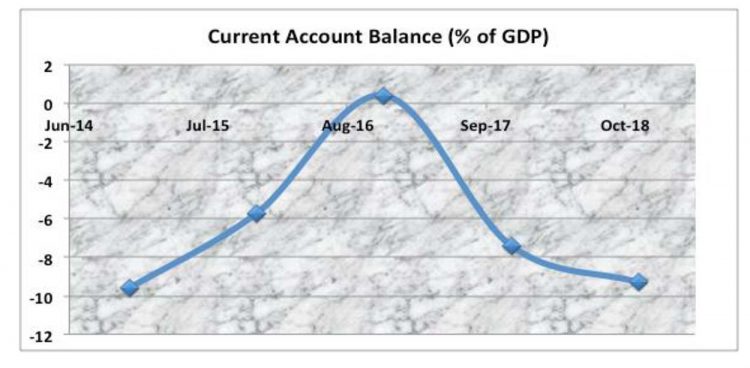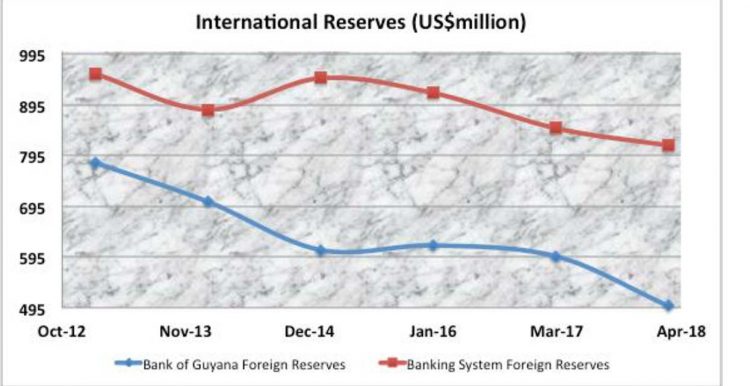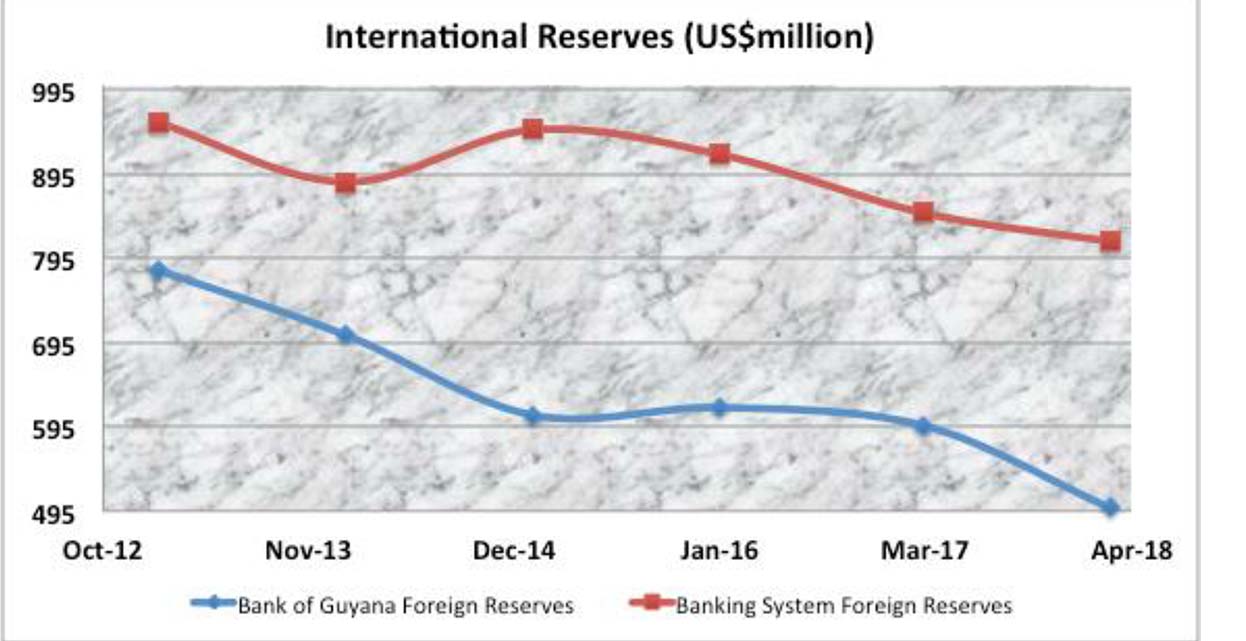Dear Editor,
In March 2018, the Statistical Abstract published by the Bank of Guyana reported that the net international foreign currency reserves at the Central Bank were US$498.5 million, a 16% decrease from 12 months prior. So let us examine these numbers.
Since 2016 the current account situation has started to deteriorate drastically. Why is this occurring, and what effects might it have on the future economy?
A current account deficit implies that, in a given year, the expenditures made by consumers, investors and the government in Guyana exceed the value of goods and services produced in the country. Of importance, the government expenditures have skyrocketed since 2016 with the biggest budget ever declared for 2018 with no certainty on how this will be funded.
The figure below shows Guyana’s current account balance from 2014 to the projections in 2018, which was sourced from the National Budgets and the Bank of Guyana Annual Reports and it shows a massive deterioration in this situation.
Indeed, Guyana’s increasing current account deficit has been mainly driven by a flatlining of exports and a creeping increase in oil prices since June 2017. But in a case of increasing oil prices, how is it being funded? Our export sectors are under a clear and present danger as the Ministry of Finance continues to under serve them. The outcome – rapid decline in the international reserves. These international reserves are composed of cash and other assets denominated in mainly US dollars.
According to the Bank of Guyana Statistical Abstract from March 2018, these international reserves at the Central Bank have declined by US$110 million since the arrival of the Granger government, as seen in the lower line in the graph below. The upper line is a reflection of the situation when the stocks of foreign currencies at the private banks are included, but the trend is the same – a decline.
In an economy like Guyana that is constructed around the six productive sisters (gold, rice, sugar, bauxite, timber, and seafood), any government must place their focus there, not on pageantry projects like the D’Urban Park Parade Ground and idle Arches.
As an example, the actions taken by the Granger government in the sugar belt has caused the US dollar cash inflow from that one sector alone to drop by US$40 million since its assumption of power in May 2015 to the end of December 2017. The decline in foreign currency inflows from GuySuCo is set to decrease by a further US$10 million over 2018 as a result of the closure of three more estates. The fact remains, closure of these estates can be an option if you have a replacement foreign currency earner to take its place. Unfortunately, the Granger Government had no replacement for the reduced foreign currency inflows from GuySuCo but continues to sell the incomplete analysis that some G$9 billion was being used to subsidize the industry annually. But when the disaggregation is done, some G$3 billion of new funds had to be pumped into the Central Government Drainage and Irrigation efforts because GuySuCo is not footing that bill any more. This is set to increase as GuySuCo reshapes its interventions in the drainage and irrigation efforts in Berbice and Demerara.
The empirical data on the developments in the Guyanese economy remains quite worrying. Anyone who is committed to progressing the welfare of the poor and the working class has to recognize that our economy needs immediate surgery (financial policy interventions). Guyana’s greatest national threat today in 2018 remains the economy; not Venezuela.
The main agenda should be to attract new foreign direct investments but this is a tough road to travel when the majority of the local population has now lost confidence in the economy and in how it is being managed by President David Granger and his Team. An even bigger agenda is the enhancement of our people’s productivity, who are still underpaid and even more demotivated today.
There is no time to waste on sloganeering like the “good life for all”, just get on with the job at hand or get out!
Yours faithfully,
Sasenarine Singh





